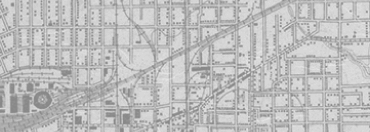


Back
T05 Transcript of State vs. Ruby: Motion for a Change of Venue, Volume 3
Transcript of The State of Texas vs. Jack Rubenstein alias Jack Ruby, Hearing on Defendant's Motion for a Change of Venue, Volume Three. Melvin Belli, Joe Tonahill, Phil Burleson and others spoke for Ruby; Henry Wade, Dallas County District Attorney, was the prosecutor, assisted by Jim Bowie and Bill Alexander. The presiding judge was Judge Joe B. Brown.Appearing as witnesses in Volume 3: Sam R. Bloom, John McKee, Barefoot Sanders, W. M. Beavers, Jack Etheridge, Harold Berman, Jack Beers, R. S. Walker, Stanley Kaufman, Robert O'Donnell, Randolph Scott, Laurel Bates, T. K. Irwin, Walter Schumach, James Buchanan II, A. C. Lewis, Howard B. Law, Searcy Ferguson and Carl Freund. The defense examined multiple witnesses who were local lawyers, residents or representatives of Dallas newspapers, television and radio stations, in an effort to prove how difficult it would be to have a fair trial for Ruby in Dallas. Some witnesses testified to the bad feeling in Dallas and how the city's reputation had suffered since the Oswald shooting. The state cross-examined the same witnesses, attempting to prove that it would be just as difficult to have the trial anywhere, since so much of the Ruby story was nationally publicized. At the end, the judge stated that he would not rule on change of venue until after the jurors have been examined.Retains both original covers; typed pages 442 - 788 of very thin onionskin paper. Text on the cover:"No. E 4010-JIn the Criminal District CourtNo. 3 in Dallas County, Texas.January term, A. D. 1964.----------The State of Texasvs.Jack Rubenstein,Alias Jack Ruby.-----------Statement of FactsHearing on Defendant's MotionFor a Change of Venue.-----------Volume ThreeFebruary 12 - 13 - 14, 1964, Pages 442 - 788"In a small box at the bottom it names James J. Muleady the official court reporter and gives his contact information. A blue stamp says, "Henry Wade, District Attorney".
T05 Transcript of State vs. Ruby: Motion for a Change of Venue, Volume 3
02/12/1964 - 02/14/1964
Jack Ruby trial
Evidence
DA's Ruby file
Trials
Press
Court records
Transcripts
Hearing
Witnesses
Jury
Ruby, Jack
Belli, Melvin
Tonahill, Joe H.
Burleson, Phil
Wade, Henry M.
Alexander, William F.
Brown, Judge Joe B.
Bloom, Sam
Sanders, Barefoot
McKee, John
Muleady, James J.
Stinebaugh, Shirley M.
Bowie, Jim
Beers, Jack
Kaufman, Stanley
Freund, Carl
Beavers, W. M.
Etheridge, Jack
Berman, Harold
Walker, R. S.
Scott, Randolph
Bates, Laurel
O'Donnell, Robert
Irwin, T. K.
Schumach, Walter
Buchanan, James, II
Law, Howard B.
Ferguson, Searcy
Lewis, A. C.
Howard, Tom
Dallas County District Attorney's Office
State of Texas
Dallas County Criminal Courts Building
Criminal District Court No. 3
Dallas
Paper
11 1/8 × 8 5/8 × 1 1/4 in. (28.3 × 21.9 × 3.2 cm)
Loaned Courtesy the Dallas County District Attorney's Office/The Sixth Floor Museum at Dealey Plaza
L2017.1.339
When Judge Brown refused to hand down a ruling on the application for a Change of Venue at the end of these proceedings, he in effect rendered the upcoming jury-selection proceedings to have double significance: the jury would be selected and, based on an assessment of the jurors' impartiality, the judge would then rule both on the official empanelment of the jury and on the success or failure of the Change of Venue application. Empanelment is the process of selecting the members of a jury that will hear a case from amongst a pool of persons summoned for jury duty. - Lindsey Richardson, Curator of Collections
The Museum recorded oral histories with the following individuals named in this document: U.S. Attorney Barefoot Sanders, Dallas attorney Harold Berman, defense attorneys Joe Tonahill and Phil Burleson and Dallas County D.A. Henry Wade. In addition, Robert Bloom, son of the late Sam Bloom, recorded an oral history with the Museum. - Stephen Fagin, Curator
In the 1964 book, Dallas Justice: The Real Story of Jack Ruby and His Trial, written by Melvin Belli with journalist Maurice "Mickey" Carroll, Chapter 9, "Conscience of a City," is devoted to this change-of-venue hearing. Belli and Carroll wrote that, in private, the vast majority of the Dallas residents that Belli encountered "confessed [that] they shared our doubts that this grievously wounded community, defensively self-conscious even before the tragic November weekend, now worried sick about its economic destiny, could possibly give Jack Ruby a fair trial." The problem was, in Belli's opinion, that few wanted to vocalize such concerns on the witness stand. The authors cite Neiman-Marcus president, Stanley Marcus, as one of the few who agreed publicly that the trial should be moved elsewhere. Reflecting on the moment that Judge Joe B. Brown announced that the trial would remain in Dallas, Belli and Carroll wrote: "Dallas braced to welcome still another horde of newspaper people. Nine hundred county citizens got ready to report for jury duty Monday morning. We prepared to show that it was impossible to find a fair jury in Dallas." - Stephen Fagin, Curator

T05 Transcript of State vs. Ruby: Motion for a Change of Venue, Volume 3
Transcript of The State of Texas vs. Jack Rubenstein alias Jack Ruby, Hearing on Defendant's Motion for a Change of Venue, Volume Three. Melvin Belli, Joe Tonahill, Phil Burleson and others spoke for Ruby; Henry Wade, Dallas County District Attorney, was the prosecutor, assisted by Jim Bowie and Bill Alexander. The presiding judge was Judge Joe B. Brown.Appearing as witnesses in Volume 3: Sam R. Bloom, John McKee, Barefoot Sanders, W. M. Beavers, Jack Etheridge, Harold Berman, Jack Beers, R. S. Walker, Stanley Kaufman, Robert O'Donnell, Randolph Scott, Laurel Bates, T. K. Irwin, Walter Schumach, James Buchanan II, A. C. Lewis, Howard B. Law, Searcy Ferguson and Carl Freund. The defense examined multiple witnesses who were local lawyers, residents or representatives of Dallas newspapers, television and radio stations, in an effort to prove how difficult it would be to have a fair trial for Ruby in Dallas. Some witnesses testified to the bad feeling in Dallas and how the city's reputation had suffered since the Oswald shooting. The state cross-examined the same witnesses, attempting to prove that it would be just as difficult to have the trial anywhere, since so much of the Ruby story was nationally publicized. At the end, the judge stated that he would not rule on change of venue until after the jurors have been examined.Retains both original covers; typed pages 442 - 788 of very thin onionskin paper. Text on the cover:"No. E 4010-JIn the Criminal District CourtNo. 3 in Dallas County, Texas.January term, A. D. 1964.----------The State of Texasvs.Jack Rubenstein,Alias Jack Ruby.-----------Statement of FactsHearing on Defendant's MotionFor a Change of Venue.-----------Volume ThreeFebruary 12 - 13 - 14, 1964, Pages 442 - 788"In a small box at the bottom it names James J. Muleady the official court reporter and gives his contact information. A blue stamp says, "Henry Wade, District Attorney".
T05 Transcript of State vs. Ruby: Motion for a Change of Venue, Volume 3
02/12/1964 - 02/14/1964
Jack Ruby trial
Evidence
DA's Ruby file
Trials
Press
Court records
Transcripts
Hearing
Witnesses
Jury
Ruby, Jack
Belli, Melvin
Tonahill, Joe H.
Burleson, Phil
Wade, Henry M.
Alexander, William F.
Brown, Judge Joe B.
Bloom, Sam
Sanders, Barefoot
McKee, John
Muleady, James J.
Stinebaugh, Shirley M.
Bowie, Jim
Beers, Jack
Kaufman, Stanley
Freund, Carl
Beavers, W. M.
Etheridge, Jack
Berman, Harold
Walker, R. S.
Scott, Randolph
Bates, Laurel
O'Donnell, Robert
Irwin, T. K.
Schumach, Walter
Buchanan, James, II
Law, Howard B.
Ferguson, Searcy
Lewis, A. C.
Howard, Tom
Dallas County District Attorney's Office
State of Texas
Dallas County Criminal Courts Building
Criminal District Court No. 3
Dallas
Paper
11 1/8 × 8 5/8 × 1 1/4 in. (28.3 × 21.9 × 3.2 cm)
Loaned Courtesy the Dallas County District Attorney's Office/The Sixth Floor Museum at Dealey Plaza
L2017.1.339
When Judge Brown refused to hand down a ruling on the application for a Change of Venue at the end of these proceedings, he in effect rendered the upcoming jury-selection proceedings to have double significance: the jury would be selected and, based on an assessment of the jurors' impartiality, the judge would then rule both on the official empanelment of the jury and on the success or failure of the Change of Venue application. Empanelment is the process of selecting the members of a jury that will hear a case from amongst a pool of persons summoned for jury duty. - Lindsey Richardson, Curator of Collections
The Museum recorded oral histories with the following individuals named in this document: U.S. Attorney Barefoot Sanders, Dallas attorney Harold Berman, defense attorneys Joe Tonahill and Phil Burleson and Dallas County D.A. Henry Wade. In addition, Robert Bloom, son of the late Sam Bloom, recorded an oral history with the Museum. - Stephen Fagin, Curator
In the 1964 book, Dallas Justice: The Real Story of Jack Ruby and His Trial, written by Melvin Belli with journalist Maurice "Mickey" Carroll, Chapter 9, "Conscience of a City," is devoted to this change-of-venue hearing. Belli and Carroll wrote that, in private, the vast majority of the Dallas residents that Belli encountered "confessed [that] they shared our doubts that this grievously wounded community, defensively self-conscious even before the tragic November weekend, now worried sick about its economic destiny, could possibly give Jack Ruby a fair trial." The problem was, in Belli's opinion, that few wanted to vocalize such concerns on the witness stand. The authors cite Neiman-Marcus president, Stanley Marcus, as one of the few who agreed publicly that the trial should be moved elsewhere. Reflecting on the moment that Judge Joe B. Brown announced that the trial would remain in Dallas, Belli and Carroll wrote: "Dallas braced to welcome still another horde of newspaper people. Nine hundred county citizens got ready to report for jury duty Monday morning. We prepared to show that it was impossible to find a fair jury in Dallas." - Stephen Fagin, Curator










